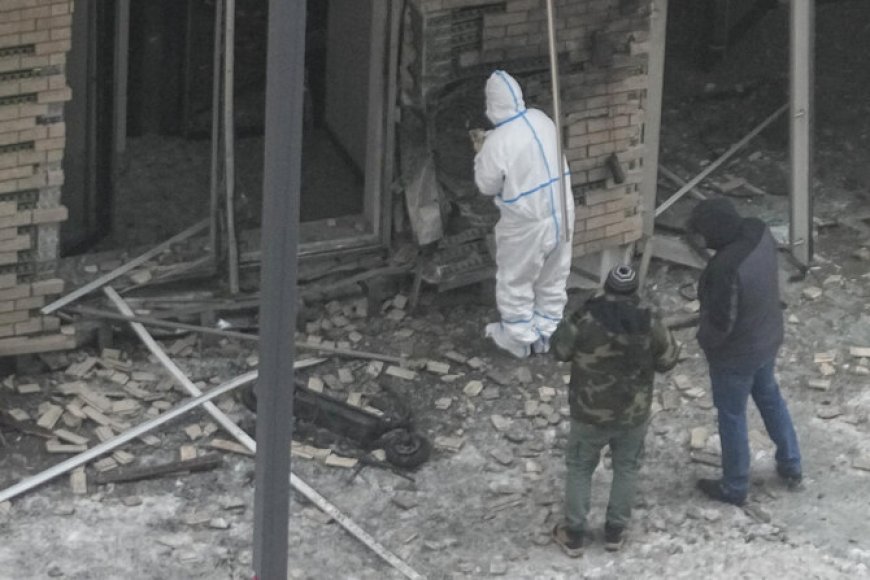Russia's Latest Political Assassination and the Deafening Silence of the West: An Escalation Story
The murder of Lieutenant General Igor Kirillov, Russia's highest-ranking commander slain inside its borders during the protracted conflict with Ukraine, signals a terrifying escalation in a war still transforming world security. Head of Russia's Nuclear, Biological, and Chemical Protection Troops Kirillov was killed alongside his helper by a bomb placed on an electric scooter outside his Moscow apartment. Since then, Russian officials have arrested an Uzbek national apparently confessing to the attack under claims he followed orders from Ukraine's Security Service (SBU). Still, the West's response—or lack thereof—highlights a disturbing double standard in its attitude to political violence amid this overt act.

The murder of Lieutenant General Igor Kirillov, Russia's highest-ranking commander slain inside its borders during the protracted conflict with Ukraine, signals a terrifying escalation in a war still transforming world security. Head of Russia's Nuclear, Biological, and Chemical Protection Troops Kirillov was killed alongside his helper by a bomb placed on an electric scooter outside his Moscow apartment. Since then, Russian officials have arrested an Uzbek national apparently confessing to the attack under claims he followed orders from Ukraine's Security Service (SBU). Still, the West's response—or lack thereof—highlights a disturbing double standard in its attitude to political violence amid this overt act.
Confirmed by Russia's Investigative Committee, the episode exposes a growingly complex pattern of cross-border terrorism. Allegedly carrying out the hit, the suspect got $100,000 along with a guarantee of European residency. Investigators said the bomb was remotely detonated using a surveillance camera set in a nearby hire car, implying a well-coordinated and resource-intensive operation.
Ukraine's SBU wasted little time asserting accountability, accusing Kirillov of planning chemical weapon strikes on Ukrainian forces—a charge Moscow angrily refutes. Although the reality behind such claims is still hidden in the mist of battle, the slaughter begs issues about the boundaries of justified combat. The possibility for escalating effects goes much beyond the battlefield when state-sponsored assassination gets accepted.
A Two Standard in Political Violence
The silence of the West over Kirillov's murder exposes a selective attitude to denouncing political violence. Imagine the indignation should a general from Ukraine have been slain on NATO territory under same conditions. Political leaders and Western media would have probably inundated the airwaves with denials, advocating more military aid and more sanctions. The story changes, though, if the target is a Russian official. This contradiction undermines the legitimacy of Western democracies asserting to follow international standards.
Often the defense offered is that Russia itself has carried out acts of assassination and assault. From claimed war crimes in Ukraine to Sergei Skripal's poisoning in the UK, Moscow's actions definitely call for investigation. Does the transgression of one side clear the other, though? The West's claimed dedication to the rule of law is undermined when it subtly supports extrajudicial killings on foreign territory, therefore supporting the cycle of bloodshed.
wider consequences for world security
This event coincides with a period of highest geopolitical tensions ever. With billions of Western military aid entering Kyiv, the situation in Ukraine has already turned into a proxy war between NATO and Russia. The West's refusal to confront Ukraine's apparent embrace of deliberate killings points to a risky precedent that might inspire like strategies elsewhere. Where does the line get drawn if assassinations start to be accepted as a standard instrument of government?
For Russia, the murder of a top military official on its own territory marks a humiliating breach of national security, hence aggravating internal demands for reprisal. It also reveals weaknesses inside a nation sometimes presented as unbeatable. Although the operation may be seen as a tactical victory for Ukraine, it runs the danger of alienating possible allies reluctant of being involved in such drastic policies.
Time for Thought instead of Escalation
Western governments have to deal with the fallout from supporting—or neglecting—actions that violate international law even while they are fast to criticize Russia's aggressions. Kirillov's murder reminds us sharply that war has no moral high ground. The West runs the danger of compromising its own values and extending a cycle of revenge by only appreciating violent deeds.
The demand for critical thought becomes ever more pressing as this war grinds on. The West has to consider if its present posture really advances the cause of peace—or instead fuels the fire of an already unstable international order—for all its assertions of moral superiority.













































